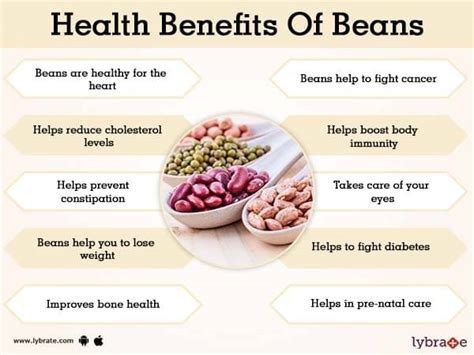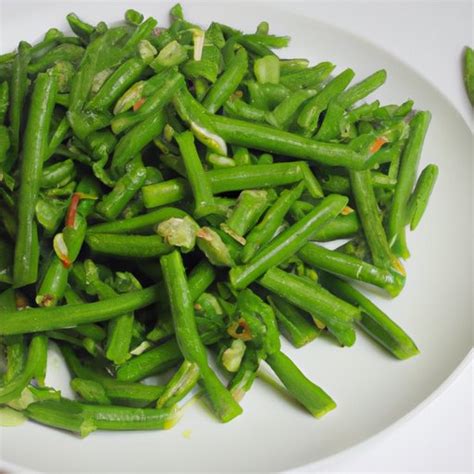Intro
Discover the nutritional benefits of beans, a rich source of protein, fiber, and antioxidants, making them a healthy addition to a balanced diet, supporting heart health and digestive wellness.
Beans are one of the most versatile and nutritious foods available, offering a wide range of health benefits when consumed as part of a balanced diet. They are an excellent source of protein, fiber, vitamins, and minerals, making them an ideal food for people of all ages. The importance of beans in a healthy diet cannot be overstated, as they have been shown to help prevent and manage various chronic diseases, such as heart disease, diabetes, and certain types of cancer. With their rich nutritional profile and numerous health benefits, it's no wonder that beans are considered a staple food in many cultures around the world.
The nutritional value of beans is impressive, with a single serving providing a significant amount of essential nutrients. They are low in fat, high in fiber, and rich in antioxidants, making them an excellent addition to a weight loss diet. Beans are also a good source of plant-based protein, which is essential for building and repairing muscles, organs, and tissues in the body. Additionally, they contain a range of essential vitamins and minerals, including folate, manganese, and copper, which play a crucial role in maintaining healthy red blood cells, bones, and immune function.
The health benefits of beans are numerous and well-documented, with a significant body of research highlighting their potential to improve overall health and well-being. From reducing inflammation and improving heart health to supporting healthy digestion and weight management, the advantages of including beans in your diet are clear. Whether you're looking to improve your overall health, manage a specific health condition, or simply add some variety to your diet, beans are an excellent choice. With their rich nutritional profile, versatility, and numerous health benefits, it's no wonder that beans are considered a superfood by many health experts.
Introduction to Beans

Types of Beans
There are several types of beans, each with its own unique nutritional profile and health benefits. Some of the most common types of beans include: * Kidney beans: These are one of the most widely consumed types of beans, with a distinctive kidney-shaped appearance and a mild, slightly sweet flavor. * Black beans: These are native to South America and have a strong, earthy flavor and a high protein content. * Pinto beans: These are a type of mottled bean that is commonly used in Mexican and Latin American cuisine, with a mild flavor and a soft, creamy texture. * Navy beans: These are small, white beans that are often used in baked beans and other traditional dishes, with a mild flavor and a high fiber content. * Garbanzo beans: These are also known as chickpeas and are a popular ingredient in Middle Eastern and Mediterranean cuisine, with a nutty flavor and a high protein content.Health Benefits of Beans

Nutritional Value of Beans
The nutritional value of beans is impressive, with a single serving providing a significant amount of essential nutrients. Some of the key nutrients found in beans include: * Protein: Beans are a good source of plant-based protein, which is essential for building and repairing muscles, organs, and tissues in the body. * Fiber: The high fiber content of beans can help to promote healthy digestion, prevent constipation, and support the growth of beneficial gut bacteria. * Vitamins and minerals: Beans are a rich source of essential vitamins and minerals, including folate, manganese, and copper, which play a crucial role in maintaining healthy red blood cells, bones, and immune function. * Antioxidants: Beans contain a range of antioxidants, including polyphenols and saponins, which can help to protect against cell damage and reduce the risk of chronic diseases.How to Incorporate Beans into Your Diet

Bean-Based Recipes
Some delicious and healthy bean-based recipes include: * Chili con carne: A spicy stew made with kidney beans, ground beef, and tomatoes. * Feijoada: A Brazilian stew made with black beans and pork. * Dal: A Indian stew made with split red lentils and a variety of spices. * Bean salad: A salad made with mixed beans, vegetables, and a vinaigrette dressing. * Bean tacos: A Mexican dish made with beans, tacos, and a variety of toppings.Conclusion and Final Thoughts

Final Recommendations
Some final recommendations for incorporating beans into your diet include: * Start small and experiment with different types of beans. * Use beans in place of meat and add them to soups and stews. * Make bean-based dishes, such as chili con carne, feijoada, or dal. * Add beans to salads and use them as a topping for whole grain bread. * Try different seasonings and spices to add flavor to your bean-based dishes.What are the health benefits of beans?
+Beans are a rich source of protein, fiber, vitamins, and minerals, and have been shown to help prevent and manage various chronic diseases, such as heart disease, diabetes, and certain types of cancer.
How can I incorporate beans into my diet?
+Beans can be incorporated into your diet in a variety of ways, such as adding them to soups and stews, using them as a protein source in place of meat, and making bean-based dishes, such as chili con carne, feijoada, or dal.
What are the different types of beans?
+There are several types of beans, including kidney beans, black beans, pinto beans, navy beans, and garbanzo beans, each with its own unique nutritional profile and health benefits.
Can beans help with weight management?
+Yes, beans can help with weight management due to their high fiber and protein content, which can help to promote feelings of fullness and support healthy weight loss.
Are beans suitable for people with dietary restrictions?
+Yes, beans are suitable for people with dietary restrictions, such as vegetarians and vegans, as they are a plant-based protein source and can be used in place of meat.
